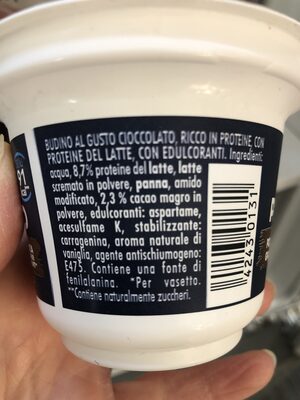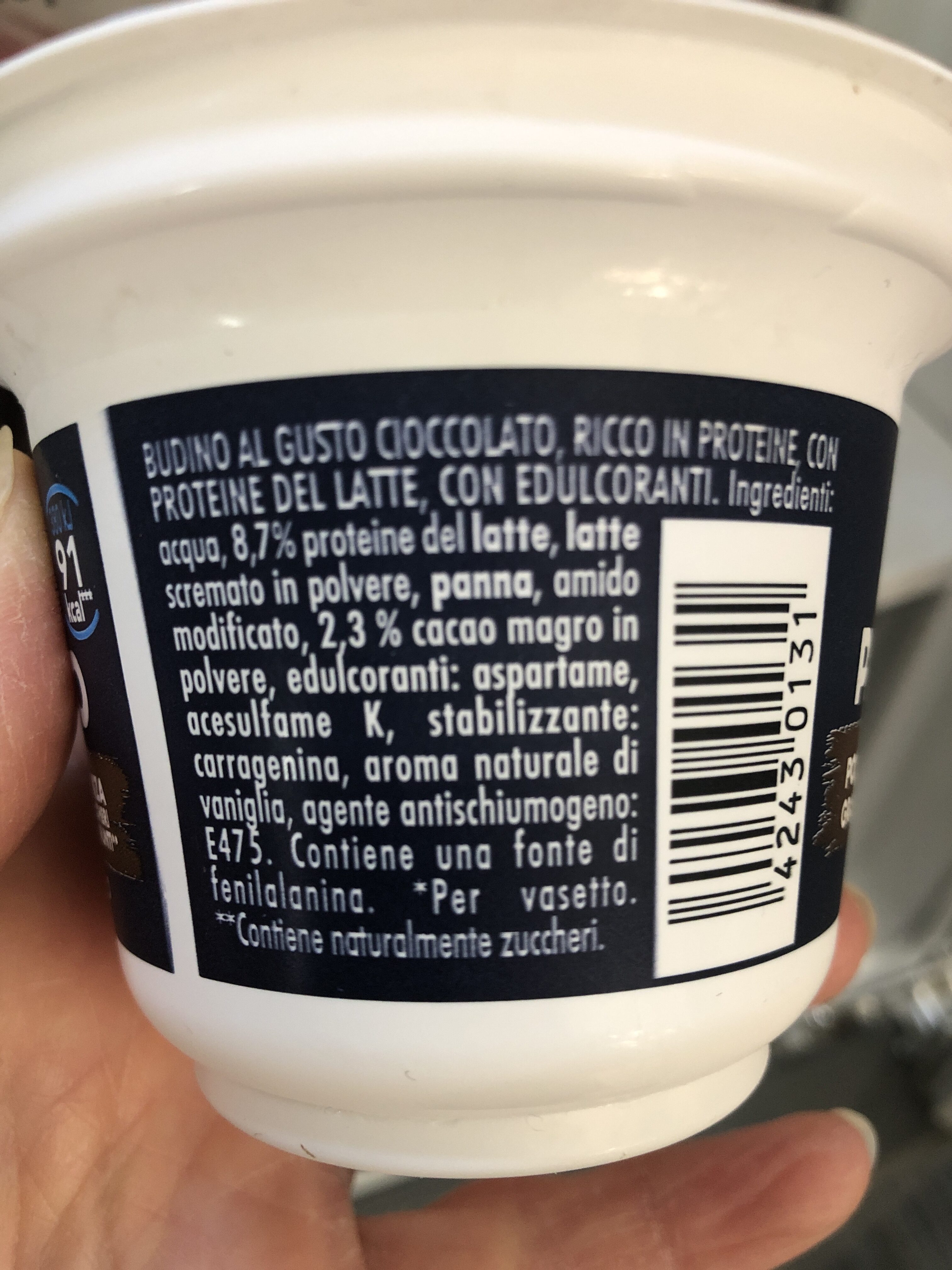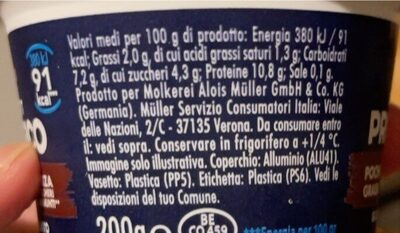Dessert proteico gusto cioccolato - Müller - 200 g
This product page is not complete. You can help to complete it by editing it and adding more data from the photos we have, or by taking more photos using the app for Android or iPhone/iPad. Thank you!
×
Barcode: 42430131
Common name: Dessert al cioccolato proteico
Quantity: 200 g
Brands: Müller
Categories: Dairies, Desserts, Dairy desserts, Chocolate desserts, Creamy puddings, Refrigerated creamy puddings, it:Dessert proteico
Labels, certifications, awards: Contains a source of phenylalanine
Countries where sold: Italy
Matching with your preferences
Environment
Packaging
Transportation
Report a problem
Data sources
Product added on by kiliweb
Last edit of product page on by vaiton.
Product page also edited by ecoscore-impact-estimator, foodvisor, gck0, inf, openfoodfacts-contributors, serendipity412, yuka.sY2b0xO6T85zoF3NwEKvllYfaefXmwr7JyXQuEa379qUFbjycchL69PmKqg, yuka.sY2b0xO6T85zoF3NwEKvlnBKWOT6kwnYHA7txWuM9vixHLLnSvJd89HfNag.









